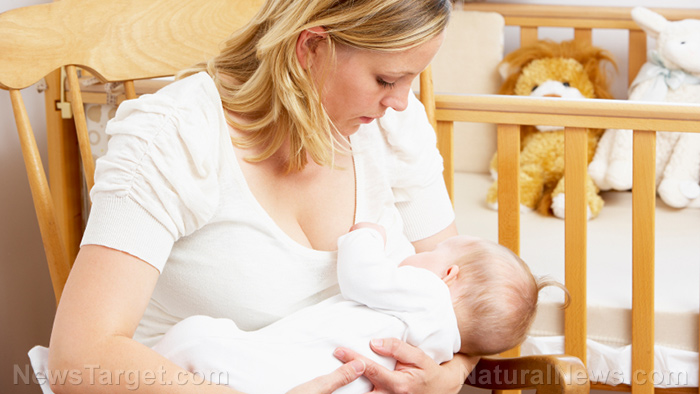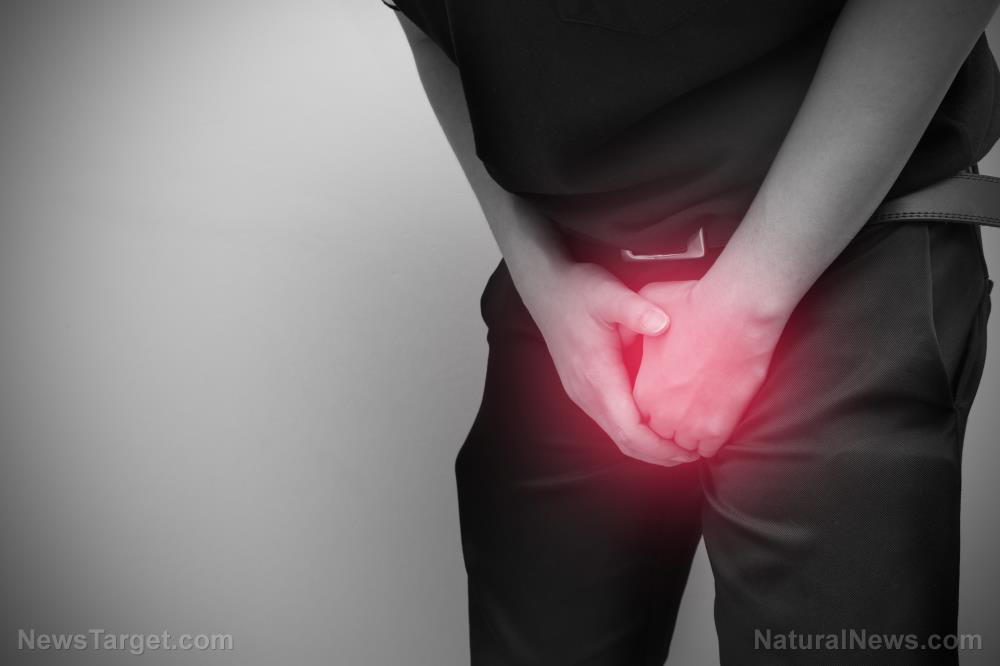
According to the study, mothers do not have to breastfeed exclusively for their baby to enjoy this benefit, which is good news for mothers who rely on other methods to nourish their infants. Researcher Kawai Tanabe, MPH, of the University of Virginia School of Medicine, shared, “These results are very powerful! Our study found that babies who are breastfed for at least two months have a significant reduction in their risk of dying from SIDS. Breastfeeding is beneficial for so many reasons, and this is really an important one.” (Related: Breastfeeding Boosts IQ of Newborns.)
Earlier studies suggest that breastfeeding was associated with a decreased risk of SIDS, the leading cause of death of babies between a month and one year old. However, this study is the first to confirm the duration necessary to provide that protection.
After adjusting for variables that could affect the results, the researchers discovered that breastfeeding for at least two months correlated to a significantly decreased risk. Meanwhile, it was determined that breastfeeding for less than two months did not offer the same benefit.
Researcher Fern Hauck, M.D., of the UVA School of Medicine and the UVA Children's Hospital, commented, “Breastfeeding for just two months reduces the risk of SIDS by almost half, and the longer babies are breastfed, the greater the protection.”
She added, “The other important finding from our study is that any amount of breastfeeding reduces the risk of SIDS -- in other words, both partial and exclusive breastfeeding appear to provide the same benefit.”
The researchers studied eight major international studies that examined 2,259 cases of SIDS and 6,894 control infants where death did not occur to determine the effects of breastfeeding on SIDS risk. The large collective sample helped confirm the consistency of findings across different cultural behaviors across countries, and it offered convincing evidence of the reliability of the findings.
With these results, the researchers are championing “ongoing concerted efforts” to increase rates of breastfeeding all over the world. Based on data from 2007, at least a quarter of U.S. babies have never been breastfed, reported the researchers. Meanwhile, the World Health Organization (WHO) has made it its goal to have more than half of infants worldwide breastfed exclusively for at least six months by 2025.
Rachel Moon, M.D., a researcher at the UVA School of Medicine and the UVA Children's Hospital, said, “It's great for mothers to know that breastfeeding for at least two months provides such a strong protective effect against SIDS. We strongly support international and national efforts to promote breastfeeding.” While the details are unclear when it comes to how breastfeeding can protect against SIDS, the researchers list factors like immune benefits and effects on infant sleeping patterns as possible contributors.
Breastfeeding longer fosters more “maternal sensitivity” in mothers
In a separate 10-year longitudinal study, researchers have determined that women who breastfeed their children longer show more maternal sensitivity beyond the infant and toddler years. The study was published by the American Psychological Association.
Despite maternal neuroticism, parenting attitudes, ethnicity, mother's education, and the presence of a romantic partner being accounted for, the results were the same. The study's findings were published in the journal Developmental Psychology.
The study's lead author, Jennifer Weaver, Ph.D., of Boise State University, expressed her surprise that the duration of breastfeeding “predicted change over time in maternal sensitivity.” Weaver continued, “We had prior research suggesting a link between breastfeeding and early maternal sensitivity, but nothing to indicate that we would continue to see effects of breastfeeding significantly beyond the period when breastfeeding had ended.”
Maternal sensitivity is defined as “the synchronous timing of a mother's responsiveness to her child, her emotional tone, her flexibility in her behavior,” and an ability to read the child's cues. The article stated that while increased breastfeeding duration resulted in greater maternal sensitivity over time, the effect sizes were small. This implies that the close interaction experienced during breastfeeding could be only one of many ways that the mother/child bond is strengthened, added Weaver.
She noted that the study doesn't mean to diminish the bonding experiences of women who are unable to breastfeed. Weaver concluded, “Ultimately, I do hope that we will see breastfeeding examined more closely as a parenting factor, not just as a health consideration, to allow us to more fully understand the role that breastfeeding plays in family life.”
Read more articles about natural cures and alternatives at NaturalHealth.news.
Sources include:
Please contact us for more information.























